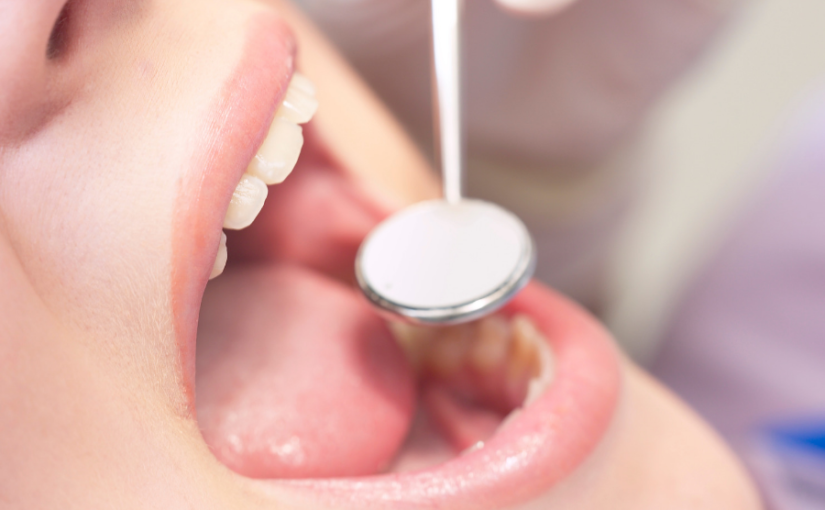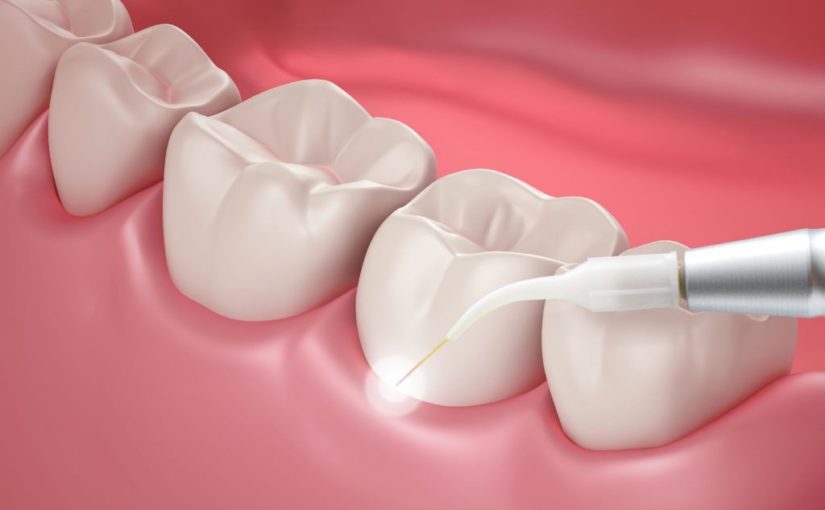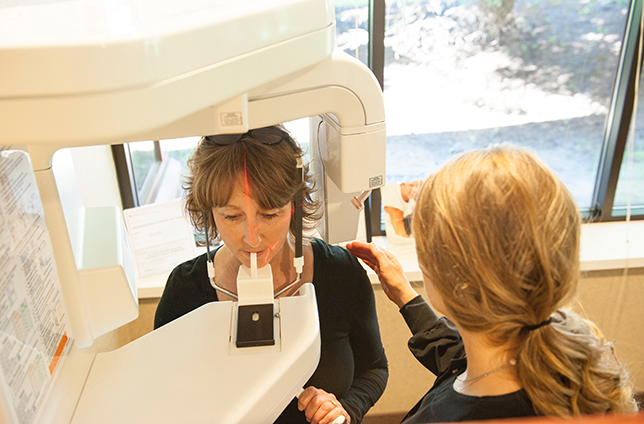By: Dr. Elizabeth Eggert
During a routine recare visit, you may have felt the dental hygienist using instruments to remove plaque and calculus from your teeth and wondered if they were performing a periodontal scaling and root planing procedure. The answer is no — periodontal scaling and root planing and a “regular” professional teeth cleaning are very different from each other.
Our patients come in for regular recare appointments as recommended, usually every 3 or 6 months. Your recommended interval may be different from your neighbor’s. During these recare appointments, our marvelous hygienists remove plaque and tartar build-up on the surfaces of the teeth. But, when our patients have signs or symptoms of gum disease (periodontitis), they often need a more detailed and deep cleaning called periodontal scaling and root planing.
Let’s take a deeper look at what you can expect from a routine teeth cleaning vs. a scaling and root planing procedure.
Professional Recare and Teeth Cleaning
What’s Involved?
During a routine teeth cleaning, a dental hygienist will remove any plaque and tartar from your teeth. Once the tartar and plaque are cleared away, your teeth will be cleaned and polished with a highly defined polishing toothpaste, and flossed. Additionally, x-rays may be taken if needed and Dr. Jeff Eggert or Dr. Elizabeth Eggert will complete a thorough dental exam looking for signs of common oral health issues, like gingivitis, periodontal disease, tooth decay, bruxism (teeth grinding), and oral cancer. They’ll discuss your results with you, and recommend any follow-up appointments you might need. Regular recare visits and teeth cleanings are usually about an hour in length for an adult and can be completed within one appointment.
Benefits of Routine Teeth Cleaning:
- Helps to keep your teeth and gums healthy by removing plaque and tartar.
- Reduces the likelihood of developing tooth decay, cavities, and gum disease.
- Improves the appearance of your teeth by removing stains caused by coffee, tea, tobacco, soda, etc.
- Allows us to monitor your oral health and identify any potential issues early on.
Periodontal Scaling and Root Planing
What’s Involved?
Periodontal scaling and root planing is a procedure that is commonly used to treat gum disease. While the goal of this procedures is to remove plaque and tartar just like a regular dental cleaning, this procedure allows for therapy much deeper on the root surface to attack any lurking bacteria.
During Periodontal Scaling and Root Planing, dental curettes and scalers, specialized instruments, remove all the plaque and tartar from above and below the gumline, all the way down to the bottom of the pocket. A topical or local anesthetic will be applied to numb the area so that no discomfort is felt during treatment. At times, it is also helpful to use high powered water irrigating instruments like the Cavitron to smooth out the roots of your teeth to help your gums reattach to your teeth. Depending on the severity of your infection, the time needed for these procedures can vary. It is common to complete treatment on one half of the mouth per session.
Benefits of Scaling and Root Planing:
- Helps to control the progression of gum disease by removing the source of infection.
- Reduces gum inflammation and promotes healing of the gum tissue.
- Helps reduce the depth of periodontal pockets, which are spaces that form between the teeth and gums due to gum disease.
- Prevents tooth loss and maintains overall oral health.
Schedule Your Routine Dental Cleaning Today!
Both regular teeth cleanings and scaling and root planing have their unique purposes and benefits, so be sure to consult with Dr. Elizabeth Eggert or Dr. Jeff Eggert for personalized oral care recommendations. When you come into Eggert Family Dentistry for a routine dental cleaning, we will be able to conduct an oral exam and recommend the appropriate procedures based on your unique oral health needs. Remember, regular dental recare visits and good oral hygiene habits are essential for a healthy smile! Call us at 651-482-8412 to book an appointment today!







